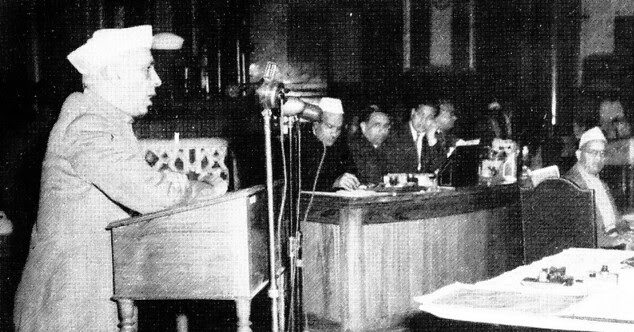Analysis
Will the Maratha Reservation Judgment Prompt a Constitutional Amendment?
DESK BRIEF: States and the Union are disappointed with the Maratha Reservation verdict, will the Union amend the Constitution to reverse it?

In May, 1951, sixteen months after the enactment of the Constitution, former Prime Minister Jawaharlal Nehru moved the Constitutional (First) Amendment Bill in the Parliament. Explaining the need for this Amendment, Nehru said, “…while fully respecting what the courts of the land have laid down… it becomes our duty to see whether the Constitution so interpreted was rightly framed and whether it is desirable to change it here and there so as to give effect to what really in our opinion, was intended or should be intended.”
Constitutional historians claim that the Amendment was intended to save the Constitution makers’ visions of social change in independent India. For the makers, the judiciary’s strict and literal interpretation of fundamental rights was a threat to this vision.
The first Amendment sought to qualify fundamental rights. It brought in several prominent changes. At the heart of the Amendment was conflict over caste-based reservation in education.
In March 1951, the Law Ministry was discussing the first Amendment. Simultaneously, the Supreme Court was hearing an appeal from the Madras High Court. In this case, Ms. Champakam Dorairajan, a person from an upper caste background, had challenged the constitutional validity of the Communal General Order, 1921. This Order granted reservation to certain lower caste groups in medical college admissions. Ms. Dorairajan argued that despite her academic merit, she would be denied admission due to her caste. The Supreme Court agreed with her. And it held that the Order violated Article 15(1) and 29(2).
The Government realised that such judicial interpretations of Article 15 posed a risk to caste-based reservation policies. Accordingly, the 1951 Amendment Act added limits to Article 15. The first amendment specified that nothing contained in Articles 15 or 29 would stop the Government from making special provisions for the advancement of socially and educationally backward classes, as well as SC/ST groups.
This tale of constitutional amendments to overcome judicial pronouncements on reservation seems poised to repeat itself soon. On 5th July, 2021, the state government of Maharashtra adopted a resolution. It urged the Central government to enact a Constitutional Amendment to remove the judicially created 50% cap on reservation.
This resolution comes close on the heels of the Supreme Court’s latest decision in the Maratha reservation case. In this decision, the Court dismissed the Central Government’s application to review its interpretation of the Constitutional (One Hundred and Second) Amendment Act, 2018. The Supreme Court, through this interpretation, had previously taken away the power of State governments to identify “socially and educationally backward” classes for the purposes of reservation. This interpretation was widely disputed, even by the government that enacted it.
In this post, we discuss the options available to the Center and the States going forward from the dismissal of the Maratha review petition.
Click here to subscribe and receive more Desk Briefs like this.
TAGS: 102nd Amendment, 105th Amendment, 1st Amendment, 50% Limit, Const
